Geothermal HVAC actual monthly cost savings
Hi,
I was poking around and noticed that it seems a number of you out there have gotten geothermal systems installed in the past few years. My wife and I are thinking about it but I've heard enough people claim that the monthly cost savings really isn't there and from all the websites I've scoured all the "monthly cost savings" I've seen are estimates based on best case scenario's and I'd really just appreciate hearing from a few people who have done it. I want to know the good, the bad and the ugly. I live in Montgomery County, Maryland, so if there are any people in my general area or in a similar climate all the better, but any experience would be much appreciated.
Primarily I'm looking for cost spent on heating and cooling before (monthly) and cost spent on heating and cooling after (monthly), ex: december $400 before, $250 after. Also, if you can let me know what you had before it'd be helpful as I have natural gas, which I'm told is already pretty good.
Thanks for the help,
-Mike
Comments (41)
wisehvac
13 years agolast modified: 9 years agothe first thing you have to do is have it installed corectly, the 2nd thing you have to do is have someone come to your house and give you an estimate.......... it onlty saves money if installed corectly.
MLMIB
Original Author13 years agolast modified: 9 years agoI'm just hoping to hear from a few people who have had one installed already and how much money they saved. We just had a $400 heating bill which served as a kick in the butt to get more info on how much geothermal does save in real life, and not just in theory.
Related Professionals
Dana Point Solar Energy Systems · Moorpark Solar Energy Systems · Palo Alto Solar Energy Systems · Rehoboth Solar Energy Systems · Richmond Solar Energy Systems · Rosemount Solar Energy Systems · Burr Ridge Home Automation & Home Media · Columbia Home Automation & Home Media · El Monte Home Automation & Home Media · Los Angeles Home Automation & Home Media · Mount Lebanon Home Automation & Home Media · Tacoma Home Automation & Home Media · Tucker Home Automation & Home Media · Winchester Home Automation & Home Media · Kirkwood Fireplacesfsq4cw
13 years agolast modified: 9 years agoHow about some details about your house and property, maybe geothermal is not even the best solution for your situation.
SR
sniffdog
13 years agolast modified: 9 years agoMike
I had geothermal installed in a brand new house so I don't have the before costs. But I can tell you that my HVAC portion of my electric bill for the month of december (I live in Northern VA) is less than your gas bill. And I am conditoning 9100 square feet of house.
The key to the geothermal performance is the total thermal and HVAC design of the house. We over insulated the attic, used 2x6 construction and filled the cavities with cellulose, caulked every nook and cranny on the interior of the house prior to dry wall, used very good windows and doors with tight seals etc etc. A lot of work and money went into the thermal design.
If you have an older home that isn't insulated well or leaks air, then you won't see the full benefit of the geothermal system and might actually see even higher monthly bills because your system might have to run longer to keep up. And the cost for GT - even considering the tax breaks - is high.
The first thing i would do is have a thermal evaluation of your home done. have an energy expert come to your home in the dead of winter and take thermal measurements throughout the house. Based on that evaluation you can make decisions on where to best spend your money. perhaps more insulation in the attic, maybe replacement of some doors or door seals, etc. You can do quite a bit to reduce your heating costs for s lot less than the cost of a GT ystem.
A friend of mine recently replaced his HVAC system with a GT system. In his case, he needed a replacement HVAC system anyway (20+ year old home). The cost of the GT system with the $9000 tax credit wasn't that much more than a convnetional system so he went for it. He did see his heating bills come down a tad but not what he had expected. Now he is in the process putting in new windows, doors, insulation etc.
If you do decide to go the GT route someday, finding a highly qualified installer is a must. In the No. VA area there was only 1 contractor (Soutern Air Temp) that had been doing GT for over 20 years. All the others are new to the game and got in once the tax credits started to be offered. So there are plenty of horror stories out there about people who put GT systems in and have had major issues.
MLMIB
Original Author13 years agolast modified: 9 years agoI think out house is about 3000sqft now, maybe a little less. Most of the house is sealed well best I can tell. We just got the windows done last month so I need to see what our new heating bill will be in a month or so as I also fixed up a few gaps in the insulation. Sniff, did ur friend save money after he got the geothermal on his monthly bill? Did he have NG before? I'm hesitant to do the energy audit just because it's $1000 which can replace 3-4 windows and I'm going to do the duct sealing and all that if I did a geothermal system so I can wrap it all into that cost to get a good write-off if I can.
sniffdog
13 years agolast modified: 9 years agoMy friend had electric heat (heat pumps) prior to the GT upgrade. After he installed the GT, his monthly Kwatt usage dropped a little compared to the prior year but not by much. H expected a 50% reduction in his bills and he only saw a 10-15% drop. But this was prior to his other improvements (windows & doors) so the story should get better over time.
Sounds like you are already doing your own energy improvements which is they right way to do it. I had a home in Sterling VA prior to this one - a new construction Toll brothers 2700 sq ft colonial that had NG heat. I remember paying $350 for a peak gas bill in a crazy winter month probably 5 years ago - so 400 bucks for your house in this past Dec (which was horribly cold) seems pretty good to me.
I also remember replacing 3 patio doors on the back of the old house (where wind would come in) with 3 point locking Anderson A400 doors and that really made a big difference.
House felt warmer, bills dropped. But the insulation in the attic was too thin (blown fiberglass), walls had R13 which wasn't great. Had we stayed there longer I was planning to blow in a bunch of cellulose in the attic which would have helped cut costs too.I would have never considered putting in GT into my old home. HAd we stayed there, I would have replaced the 2 heaters with high efficiency NG units. When the siding needed replacmement, i wouuld have added exterior foam boards to provide a thicker thermal barrier and cut down air infiltration.
The new house was a different story. My only other option for heating this house would have been propane heat and I was definately not going down that route. We had propane in our rental house during conctruction - a 2 year old Richmond American 3100 sq ft house - and it guzzled propane. It was just insane. So GT for the new house made a lot more sense.
I really love the GT system but the business case for it doesn't always work out. If you are going to replace the HVAC anyway, it would not hurt to get a few quotes just to see what the delta cost would be and comapre that to the cost of a high efficiency conventional system. Be conservative on the energy savings and compute the years to break even, comapre that to your anticipated time lft living in that house. Then make your decision on that analysis.
BTW - if by chnace you do go down the GT route, definately make sure that your auxilliary heater is NG. I have electric heater packs fir my auxilliary heat and I would not recommend those if you have gas as an option. Given the crappy performance of PEPCO - put the Aux heater, tstat contols, and HVAC fan on a backup generator so that when the power goes out you can run your heater off a small power gen. The GT heat pump compressors take a large generator to run. I have a small backup generator but use a wood burning fireplace/heater and portable fans for my backup heating system. This has not been a good year for PEPCO.
david_cary
13 years agolast modified: 9 years ago$400 for NG on a 3000 sq ft house in your climate for Dec seems really high.
For comparison - 4000 sq ft, well sealed, Dec heat was $110. Now we are a tad warmer but this December was colder than your average. That was $60 NG and $50 electric with a dual fuel system. I'd have to think that pure NG would be $150 or a little less. Just R-13 in walls, R-40 in attic, conventional fiberglass.
Our energy audit prior to build had a HVAC annual estimate of $2000 with geothermal saving about $300 a year. That is with cheap electric ($.10) and the comparison was pure NG and Seer 13 a/c. You could save $200 by going to Seer 16 for a lot less money. In your area, I'm guessing that your electric rates are high and you could actually spend more money for heat per month with geothermal than NG.
You need more insulation and find a cheaper energy audit. Check your utility companies and see if they help pay for an energy audit. I think your best payoff is removing attic insulation, caulking/foaming, and then replacing with R-40 or higher.
sniffdog
13 years agolast modified: 9 years agodavid
where is your louse located? The mid altantic area (DC, No. VA, MD ) was an average of 7 degrees colder per day for the month of Dec - that is unbelievably cold for this area and time of year. I think it was the coldest Dec on record for this area. I live about 20 miles as the crow flies to where the OP lives.
My heat was running continuously (3 cycles per hour for 10 minutes per cycle) for almost the entire month of Dec and I have a well insulated house with R38 in the attic and R19 in the walls, tightly sealed. The problem wasn't just the cold it was the super high winds too.
I agree on the attic insulation - that would be the next place I would attack. I would also work on the door seals too and if need be, replace the doors with something like the Anderson A400's which have a great seal and 3 point lock system to keep the seal evenly tight around the door perimeter.
You can't do much about the walls (unless you want to spend big bucks) but if the siding is going to be replaced down the road, adding foam board to the exterior can really help cut down drafts and bump up the R value.
I would also look at sealing outlets and switches in the house on the exterior walls. If you have 2x4 walls, you probably don't have any insulation behind the electrical boxes and that is a great place for drafts to get in. I would use duct sealant (grey caulk for sealing HVAC ducts sold in tubes) on the inside of the boxes to plug up the wire pentetrations. Then use the thin foam sheets with precut holes for outlets & switches to seal around each device. Cutting down air infiltration can save you big bucks.
I would do everything I could to insulate and seal and then see what the savings are. Then do a cost/benfit assessment on the HVAC system options.
david_cary
13 years agolast modified: 9 years agoNC - which had the 3rd coldest Dec on record. Obviously a bit warmer than DC area but not that different. Our Dec temp averaged 34 which is less than your average but definitely not this year. I just think almost triple the NG cost is high for a smaller house.
Sniff - do 10 min cycles make sense for the coldest Dec on record? That seems awfully short to me even for fossil fuel heat. I guess it isn't a problem but it seems like a longer run would make more sense. Also - R38 in the attic can be cost effectively improved upon (even in NC - although barely and only as a DIY).
sniffdog
13 years agolast modified: 9 years agoI guessed on the cycle times - they may have been a bit longer. The point is that my heat ran continuously day and night for just about 31 days straight. If the OP had a similar situation, a $400 gas bill is not surprising to me for a relatively older house and his sq footage. In 2006 we were averaging about $300 per month during peak winter months for NG heat and hot water and a 2700 sq foot house built in 1993 with R13 walls. I don't know what the ceiling R value was but it wasn't good.
It sounds like the OP could lower those bills with some attic insulation and sealing improvements. I would look at the DIY blown cellulose offerings from Lowe's and HD to improve the attic insulation. Sealing doors and outlet/switch boxes on exterior walls. Once that is done, then look at the monthly bills and decide if GT would make sense.
MLMIB
Original Author13 years agolast modified: 9 years agoSo from what I'm gathering the geothermal cost effectiveness vs NG in the winter is questionable, how does the Ac compare to geothermal? Does it make more sense in the summer? Is there any way to make the system use NG in the winter since that will be my backup if that really is the more cost effective solution?
I think the house is reasonably well insulated, although it does have too for improvement as I'm learning more about insulating. I'm trying to get my hands on a thermal imaging camera to help me out with it. The cost for a Geo system with NG backup is looking to be 13k aftergrants and tax write-offs and it'd be a 4ton carrier system with zones which would be new. So it's looking to be alright. Is carrier one of the better Geo systems? I'm still not sold on it as the heating season seems to be a wash if I'm getting the right vibe.
Thanks for the great advice so far.
david_cary
13 years agolast modified: 9 years ago$13k is not bad. What are your electric rates?
Geothermal achieves better COPs than an air source heat pump or conventional a/c. COPs vary on temp. With an air source, the temp is the air, while geo uses water underground. In the summer, the ground water might be 60 degrees while the air temp is 90 degrees. It is easier (less energy) to move heat to 60 degree water vs 90 degree air. How much easier? Good question. I'd guess it is on the order of 20-30% easier; ie - you'd save 20-30% on a/c costs. Now - sometimes the a/c is running and it is only 70 degrees outside and then the savings is much less. Given the temps involved, geo makes less sense in the summer but since you don't have NG as on option in the summer, it might make more sense for you (with high electric rates)
So it comes back to what are your rates and what is your summer a/c costs? If you spend $500 a year on a/c and save 20% - well - you can do that math. If you spend $2000 a year on a/c...
Geo works best (best payoff) when the higher upfront costs can save all year round.
I still think your house is either not well insulated or something else is an issue with a $400 NG bill. Now if you tell me that you spend $2000 a year on a/c - I really am going to tell you that something else is wrong (unless your electric rates are >$.20)
In NC, $500 is a reasonable average for a larger home for annual a/c bill. Hard to justify geothermal to save $100 a year. I'd expect your electric rates to be 50% greater but your climate to be a tad cooler. So I'd guess $700 a year for a total ballpark savings of $140 a year.
I'm sure that some would say that geo saves more than 20% on a/c but I'd like to see some proof. The delta Ts just aren't that different. Often times, their comparison is some old Seer 10 unit and sure, then 40% is possible. The whole problem is that you can get 20% savings from a Seer 18/19 air source unit for a lot less money. It won't last as long but that is a whole different issue.
sniffdog
13 years agolast modified: 9 years agoOur peak summer kwH usage (Jul-Aug) is about 15% less than peak winter months but the rates are higher in the summer so it sort of washes out. My geothermal heat pump performance (Econar based in WI) is optimized for winter operation.
Carrier doesn't sound familiar to me as one of the better geothermal heat pump producers. I have heard good reviews on Water Furnace and Florida Heat Pumps. You might want to do a separte post to get opionions on that topic.
It sounds like your quote was in the low $20,000s and after tax breaks you are down to 13K. Sounds like a great price (especially with zoning) - but do your homework. Call Southern Air Temp (Berryville VA) and get a quote from them. They have been doing GT for over 2 decades and did mine. They no longer resell Econar - now offer Fla Heat Pumps. I would also get a quote from United Air Temp which is who did my friends system. I also used United a long time ago - very reputable.
When you get your quotes, ask them to give you a quote for a High Efficiency HVAC system and then get a delta quote for a Geothermal option. I did this and then was able to make my business case for the added expense of going to GT.
It sounds like you need a new HVAC system anyway and if that is the case, 13K for a new GT system is a deal.
fsq4cw
13 years agolast modified: 9 years agoRe: david cary
"It won't last as long but that is a whole different issue."
When discussing life-cycle costs it's the same issue.
Geothermal training courses, such as IGSHP, suggest that GSHP are about 40-45% more efficient than high-efficiency air-source HPs. However your points are well taken.
Re: sniffdog
I believe that Carrier owns ClimateMaster; same GSHP different badge.
SR
david_cary
13 years agolast modified: 9 years agoThe overall 40% more efficient is probably right but most of that gain is in the winter unless that is a number quoted for summer. 60 degree ground water vs 20 degree air is a big difference.
I just meant that life cycle costs were not the original discussion. Absolutely geo wins here but may not make a difference for most home owners since their chances of being in the house for long enough to see that are probably 15% or less. And that benefit is also mostly avoiding cold weather issues but with NG backup and high electric rates, that HP (whether AS or GS) wouldn't run in really cold temps anyway.
On a side note, that $7k is not free - we all pay for it. I hate to see someone waste govt money. Just something to think about but I realize that argument would sway very few people. Ideally that money would go to people in Minnesota who don't have NG. I took a hybrid car tax credit but at least I drive a lot to different work sites. I also took a solar hot water credit even though I have NG but the sun is even better than geo. So I am a total treehugger making an argument against Geothermal....
sniffdog
13 years agolast modified: 9 years agoOK - ClimateMaster is another good brand discussed here often.
The Op won't be wasting money. He is merely taking advantage of tax breaks and would be foolish not to. I would take the 13K deal in a heartbeat for a 4 ton GT system assuming it was done right.
david_cary
13 years agolast modified: 9 years agosniffdog - what if that system only saved $140 a year. Would you still say that? Well - it might. At $.15/kwh (guessing), the geo might be more expensive than NG and his a/c bill might only be $700 a year (and maybe saving 20%)
That maybe a wasted $7000 (for the govt). And perhaps a few wasted for him.
Geo is not a panacea. It is a more efficient way of doing things to be considered among other options. I don't think you save any money on heating with a geo system vs a 90% NG furnace in MD. Above $.13/kwh, NG is hard to beat.
neohioheatpump
13 years agolast modified: 9 years agoits nice to have options in-case natural gas price spikes again. I"m sure it will happen again within the next 5-10 years. Air-source heatpumps are great because they are inexpensive and can give people a different option.
Typically it seems when people make the big investment for geo-thermal they don't have gas backups. I don't blame them either. Part of the idea in going all electric is to save with the monthly gas service fee. The thought also with geo is your COP should always be High for the heat your producing and never going into defrost.
I honestly would expect big savings from geo-thermal if you have good priced natural gas. I'm surprised if people aren't getting it.
neohioheatpump
13 years agolast modified: 9 years agoIn my previous post I meant to say in the last sentence -
I honestly would expect big savings from geo-thermal if you have good priced electricity. I'm surprised if people aren't getting it the energy savings.
With Geo-thermal your never going into defrost and your COP is always close to 4.00 I would assume (if your ground loops are properly installed). Right now its 21 degrees where I"m at. If I was operating my heatpump it's COP would probably be about 2.7 and it would be running constantly to keep up. With geo-thermal it should be no problem at 21 outdoor temp I would imagine.
Anybody with Geo-thermal out there want to comment?
'
david_cary
13 years agolast modified: 9 years agoI wondered about that sentence.
The problem with the OP is that he has NG and high priced electricity (I think). With a COP of 4.0, the break even right now is about $.14 (therm being less than $1). But the point that NG will likely be higher 5-10 years from now is true. Electricity might climb with that also - but electricity is always more flexible.
MLMIB
Original Author13 years agolast modified: 9 years agoSorry for the absence, work got in the way
so I'm planning on sticking around in the house for ~30-40 years (I'm mid 20's and we bought the house for the school district for kids we don't have yet)
From what I'm gathering I'd be able to save some money on AC in the summer and I'd probably have to look into finding out if I can use the gas in the winter and not use the geothermal section that much right now since gas prices are probably low enough to make it more cost effective.
Also, my assumption has been that geothermal units are lower maintenance because I view them as having less moving parts so I think they should last longer, is that true or am I overlooking something? If so it may just make sense for me to get one once my AC is on it's last leg so that way my delta over needed costs is less.
my current electric generation costs are ~$.09, so it sounds like the geothermal will really be a win, time to get more quotes I guess and start saving the pennies
david_cary
13 years agolast modified: 9 years agoCheck your total electric costs. Often times there is a rate that looks low but there are other things thrown in there that really change the picture (like taxes and transmission charges). $.09 would be surprising for Md but not impossible.
Geothermal units do have the potential to be trouble free for many many years but I don't really think there is a huge difference as compared to NG furnace and conventional a/c. A geothermal unit is just a heat pump which is just the same as a/c with a reversing valve. The heat source is water rather than air and because of that, there are less extreme temperature changes. That makes it last longer. So a geothermal heat pump will last longer than an air source heat pump.
There is a pump for the water instead of a fan for the air. Other than that, the moving parts are pretty similar. An 80% NG furnace - that is pretty simple with less to go wrong.
You can always still have NG in the winter (and then switch to geo if NG prices climb). That should not be complicated. But again, the summer savings are not going to blow you away.
The tax credit is to 2016 so you can wait it out. Tighten your house up as much as you can as that will be a far better payback.
CAH1511
13 years agolast modified: 9 years agoMy home was built in 1999 and is about 2300 sq. ft. We had geo thermal installed, which we thought was supposed to have huge savings. Our prior home we heated with coal, so we're not sure what normal electric bills should be. We are in PA and our hottest summer month and coldest winter month's bills are over $300.00. Is this normal for geo thermal?
davescar_gmail_com
13 years agolast modified: 9 years agoReplying to CAH1511 - Barely any of these posts have enough information for anyone to say whether or not what you pay is good/bad or otherwise, but I can supply you with my actual costs for Minnesota.
In December we had 1,824 heating degree days. I used 1,890 kWh for heating:
House to 71 degrees (2000 sq feet)
Garage to 53 degrees (500 sq feet attached)
And all of the hot water (on the same meter, with geo assist)This is on a duel fuel electric rate, and my bill was $137 for 12/3/10 --> 1/6/11
This is with R22+ walls, lots of windows and R65-70 attic, so it is very well insulated. My friends and I did most of the work on the house, so we are proud of the outcome. Especially the heating/cooling costs. I live in the country, so the only real option would be propane...
Oct heating ~40
Nov heating ~100MN Hilltop
CAH1511
13 years agolast modified: 9 years agoWhat do you mean MN Hilltop that your electric is on a duel fuel rate? Are you total electric or not? I heat and cool with geothermal and everything else in the house is total electric. If yours is also, and you only paid $137, I'm definitely having a problem.
MNHilltop
13 years agolast modified: 9 years agoThe power company in my area offers a "duel fuel" rate. This means that they can occasionally cut off that meter (goethermal and some other heating equipment on a separate meter) during periods of peak use. In exchange, you get a rate that is almost half of normal per kWh rates. They only shut it off for 4 hours and I have never been shut off more than once a month. The thermal mass of heating 30 yards of concrete allows me to not even notice a 4 hour blip.
Anyways, the number is for the heating equipment only. The rest of my power bill is usually about $35-$40 more. So, I am guessing that the combonation of much lower electric rates (under 5 cents a kWh before tax, about 7.5 after) and possibly more insulation could account for some of the difference.
The only way for you to know is to get someone to put a meter on your heating equipment to see what that uses. They can clamp equipment inside your breaker box. The reason I can quote heat only numbers is because the electric company put in 2 meters.
Good luck with your investigation. I am guessing if you have a big family, laundry, TV, and lights really add up. Check with your neighbors!
MN Hilltop
java_man
13 years agolast modified: 9 years agoNorth Vancouver, BC, Canada, a 4770 SF house, built in 2004, R-16 walls, very well sealed, R-40 attic. Forced air geothermal closed loop system using a 4-ton ClimateMaster. Annual usage of electricity for all heating, water heating, light, etc. was 53.81 KwH PER DAY for all of 2006. You can check our average monthly temperatures at the link below. It should help you compare the electricity consumption we experienced with the different temperatures you experience in your climate.
Our system needed auxiliary heating several days each winter. Ours used a 40 amp plenum heater that really made the old electric meter whirl around!
After we sold the house, the new owner forgot that I told him NOT to use the setback thermostat at night because a difference of more than 1 degree F between the indoor temperature and the thermostat setting would start up the 40 amp plenum heater. He set his temperature back at night for several months so that his plenum heater kicked in to heat the house every morning. his electricity consumption during that period was almost double what ours had been.
We had considered using an air-to-air heat pump instead of geothermal, but decided not to. At that time it would have cost us 60% less to install, but would have been more expensive to operate in our climate. In a colder climate, it would have been significantly worse. The payback period for air-to-air in our climate was calculated at ~ 4 years. The payback period for geothermal based on our first 5 years of operation looks as though it would have been nearly 11 years.
We sold the house after 5 years for other reasons, and did not get the full payback from reduced operating cost. It's difficult to say with assurance whether we got a premium price for our home because of the low heating/cooling cost, but we certainly advertised it and the buyer was very interested in the annual savings from heating and cooling. I know he was able to do the calculations about how much that saved him every month, and I'm sure that figured into the offer they finally made . . . but who knows.
Here is a link that might be useful: Average monthly high a low temperatures
jasmine1897
13 years agolast modified: 9 years agoHas anyone used the geothermal savings calculators out there? Are they accurate? We are considering geothermal to either replace an oil fired boiler or keep the oil as backup and for hot water. The salesman suggests keeping the oil for backup and to heat the water as he says we won't have as much hot water with a desuperheater water system, however, his company also supplies us with oil. The calculators I have used have us saving quite a bit and it would be well worth it in the long run but I'd love to hear if anyone else used them and then got a system and compared the actual results with the projected results from the calculator.
rvp232_gmail_com
12 years agolast modified: 9 years agoSpend your money insulating and weatherizing, and you will see your bills drop significantly. Then, you may be saving an extra 10-20$ per month on geothermal vs high efficiency hvac. I say air seal, insulate, get good windows, a high efficiency hvac, and then a solar/pv array, in that order. You're bills will be next to nothing, you'll just paying for some NG but no electricity. Of course make sure you have the right orientation for solar, but if you want to save money and be efficient that's the way to go. Geothermal is just not worth it. And make sure you properly size any heating/cool system you use. Oversized systems are super common and extremely inefficient.
Annie Deighnaugh
12 years agolast modified: 9 years agoWe live in southern new england and built a green house. I can't isolate the energy costs from the geothermal unit specifically but I can tell you (granted we had a mild winter) that our total electricity costs for the last 12 months was under $800. That includes heat, a/c, radiant heat floor in the master bath, lights, dryer, dishwasher, fridge, etc.
Our house is new construction and is 2100 sq ft on the main floor with a finished basement walk out to the south, passive solar design. We have closed cell insulation, 5kw active solar panels on the roof, and a wood stove. We also have all our duct work in conditioned space and an Econar geothermal ground sourced heat pump system. We also use lp fired tankless hot water heaters.
We believe that the Econar system paid for itself immediately as, the cost differential between a traditional heating and a/c system vs. geothermal is the cost of the wells. The 30% tax credit we received covered that cost. We have two 250' wells which were drilled in a single day. There is no ugly compressor on the outside of the house and we love waving at the oil trucks as they drive by. We went with Econar as they are built in Minnesota and are designed to be heating systems that also cool...vs some of the others that are designed for the southern climes so they cool but also happen to heat. Even last winter which was very cold, we never used the emergency back up heat.
We use the woodstove only in the evenings after the sun goes down and on rainy days. Typically this means the heat will come on in the morning only.
The basement can be heated, but we don't as it maintains a temp of 63 degrees in the winter without the heat. On sunny days both the downstairs and upstairs gain 4 degrees from the sun. We keep the temp upstairs at 69 degrees.
I'm not fan of A/C but will turn it on if it gets close to 90. Otherwise, our house which has casement windows that act like fins, captures all the breezes that go by and keep the house very comfortable in hot weather. When we do turn the A/C on though, it cools the house steadily and comfortably.A few things: the system likes a steady temp so set back thermostats are not a good idea. Also, we have our electric emergency back up on a manual switch. If the temp varies too much (like with a setback thermostat) the system may automatically kick in the emergency power and you will lose your energy savings. We didn't order the desuperheater, but it came anyway so we are using it. It preheats the hot water before it hits the tankless hot water heater so it uses less gas. However we don't run the system just for hot water. So for 6 months (spring and fall) the system is essentially off.
The worst month we had was last January 2011 when our solar panels were covered with snow and the temps were around 0-20 degrees and our electricity costs (per kwh costs are among the highest in the country) were $300 for the month. This is less than half the cost of one tank of oil in our area. So we feel the savings overall have been quite substantial.
Punturic
9 years agolast modified: 9 years agoI know this is an older post but for anyone still looking, here is a great tool for calculating geothermal cost savings!
Geothermal Cost Savings Calculator:
http://www.climatemaster.com/residential/geothermal-savings-calculator/sc01.phpHere is a link that might be useful: Geothermal Cost Savings Calculator
mike_home
9 years agolast modified: 9 years agoThe geothermal cost calculator is useless. For my area is shows the natural gas rate to be $1.42 per therm. My last bill was $0.59 per therm. I have never paid such a high rate. How can you do a calculation if you are not allowed to input the correct values?
If you want to calculate the true costs of geothermal vs. other fuels you will have to find a better calculator.
Punturic
9 years agolast modified: 9 years agoInteresting, I will check on the pricing with ClimateMaster as soon as I can!
This post was edited by Punturic on Tue, Feb 3, 15 at 15:27
Filip Stanek
9 years agoThis won't help the OP much, but if anyone else is looking for some geothermal before & after numbers, I've been collecting mine if you follow the link.
mike_home
9 years agofilip,
You link provides great information for those who are considering geothermal. I commend you for putting this together.
Can you share what were your up front costs? Have you done an estimate on what is the return on investment time period on your geothermal unit compared to an air sourced heat pump?
Filip Stanek
9 years agolast modified: 9 years agoHere you go:
After all rebates (there were several) & tax credit, my geothermal system ended up costing about $13,500.
It looks like I'm going to be saving about 6000 kWh per year. When using an air source heat pump, I averaged about 27.5k kWh per year, and using the geothermal heat pump I'm averaging about 21.5k. Keep in mind that I don't even have a complete year of geothermal data, but I'm basing my estimates on what I have.
Based on the numbers above and an electric rate of $0.11 per kWh, I'm saving $660/yr compared to my previous system. The ROI on that is about 20.5 years. So, if you have a working system and you're considering switching over to geo, based on my #s I'd strongly recommend against it as a 20+ year ROI is horrible.
The reason I went with geo was that my old system died and needed replacement. I received several estimates for an air source heat pump, and they were around $9000. For me, it was a choice between a geo system for $13500, and an air source for $9000. I can't do much of an estimate comparing these two since I have no idea what sort of performance I'd be getting with a new air source heat pump. A huge plus for the geo system for me was that my geo system came with a 10 year parts and labor warranty. No one came even close for the air source heat pumps. Its also really neat that I don't have a loud evaporator in my back yard, but the value of that is very subjective.
mike_home
9 years agoThis is great information for people considering geothermal.
I would have thought the geothermal system would have cost much more. I think you got a great price. Let's hope it works trouble free for the next 20 years.
Good luck.
fsq4cw
9 years agoRe fillip_stanek:
If geo was 13.5K & air source was $9k and the system needed replacing, then the cost differential was only $4.5k. Saving of $660/yr. give you a payback of less than 7-years, this doesn’t even take into account lower maintenance costs or much longer life cycle.
I’d say it’s a ‘win, win’!
IMO
SR
Filip Stanek
9 years agofsq4cw:
The $660/yr savings is when compared to a 25yr old heat pump. I have no idea what my savings would be when compared to a brand new $9k air source HP. I'm guessing that there would be savings, I'm just not sure if they're close to $660 or if they're closer $200.
It really is very difficult to determine a true ROI. For example, my house is much warmer right now with the geothermal system in place. On my old system, we kept the house at 70F on the main floor in the winter. On the geo system, the house is set to 72 - but the 72F is the average between two floors. The main floor is actually warmer than 72 since the upstairs is cooler. The return temps at my geothermal system are usually around 73. I'm actually very impressed that we're seeing significant savings even though I'm asking the geothermal system to do much more.
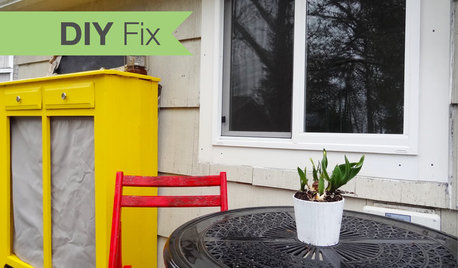
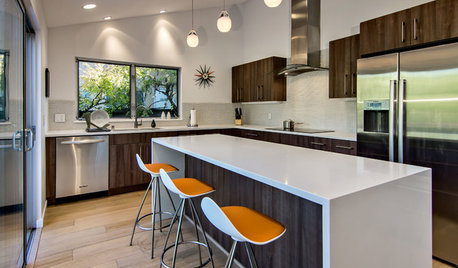
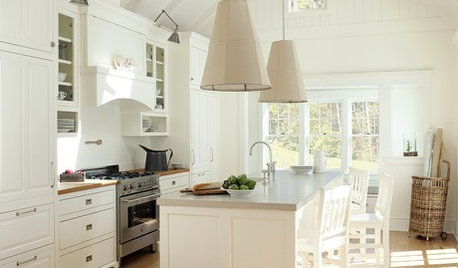
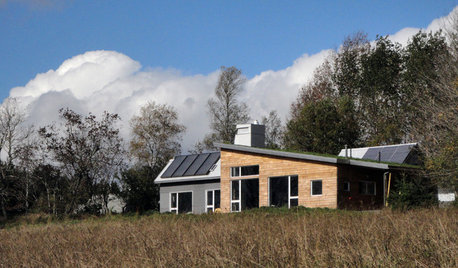


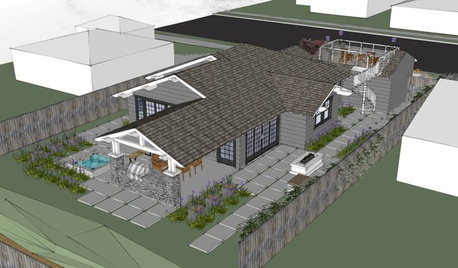
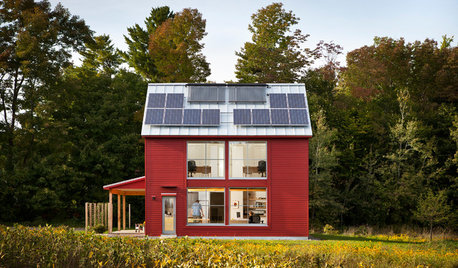








david_cary